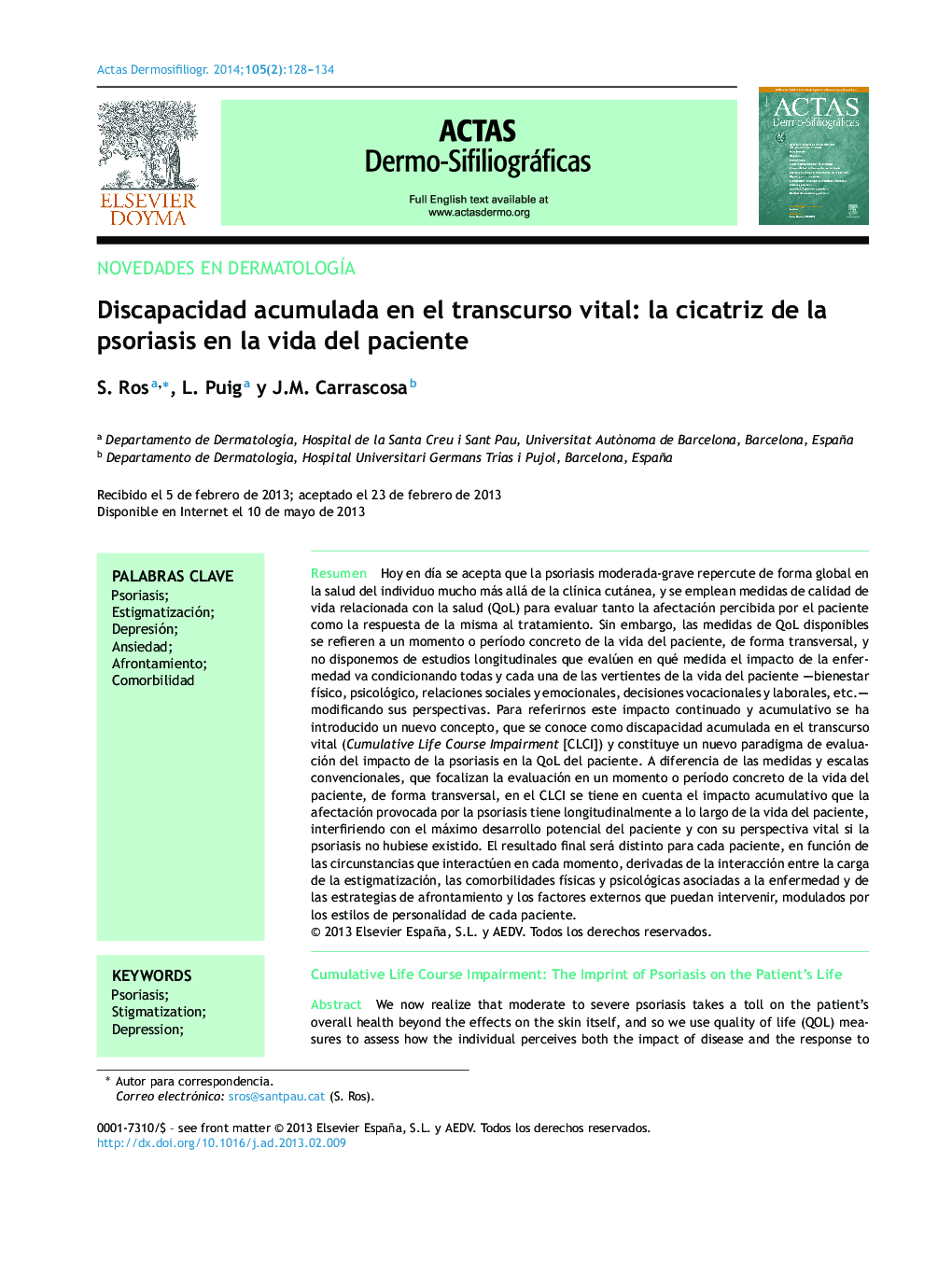| Article ID | Journal | Published Year | Pages | File Type |
|---|---|---|---|---|
| 3179930 | Actas Dermo-Sifiliográficas | 2014 | 7 Pages |
Abstract
We now realize that moderate to severe psoriasis takes a toll on the patient's overall health beyond the effects on the skin itself, and so we use quality of life (QOL) measures to assess how the individual perceives both the impact of disease and the response to treatment. However, available instruments give us a cross-sectional assessment of QOL at a specific moment, and we lack longitudinal studies of how a disease affects each and every aspect of a patient's life over time-including physical and psychological wellbeing, social and emotional relationships, vocational and employment decisions, and how they change the individual's outlook. A new concept, cumulative life course impairment (CLCI), captures the notion of the ongoing effect of a disease, providing us with a new paradigm for assessing the impact of psoriasis on QOL. Unlike conventional measurement tools and scales, which focus on a specific moment in the patient's life, a CLCI tool investigates the repercussions of disease that accumulate over a lifetime, interfering with the individual's full potential development and altering perspectives that might have been different had psoriasis not been present. The accumulated impact will vary from patient to patient depending on circumstances that interact differently over time as the burden of stigmatization, concomitant physical and psychological conditions associated with psoriasis, coping mechanisms, and external factors come into play and are modulated by the individual's personality.
Keywords
Related Topics
Health Sciences
Medicine and Dentistry
Dermatology
Authors
S. Ros, L. Puig, J.M. Carrascosa,
